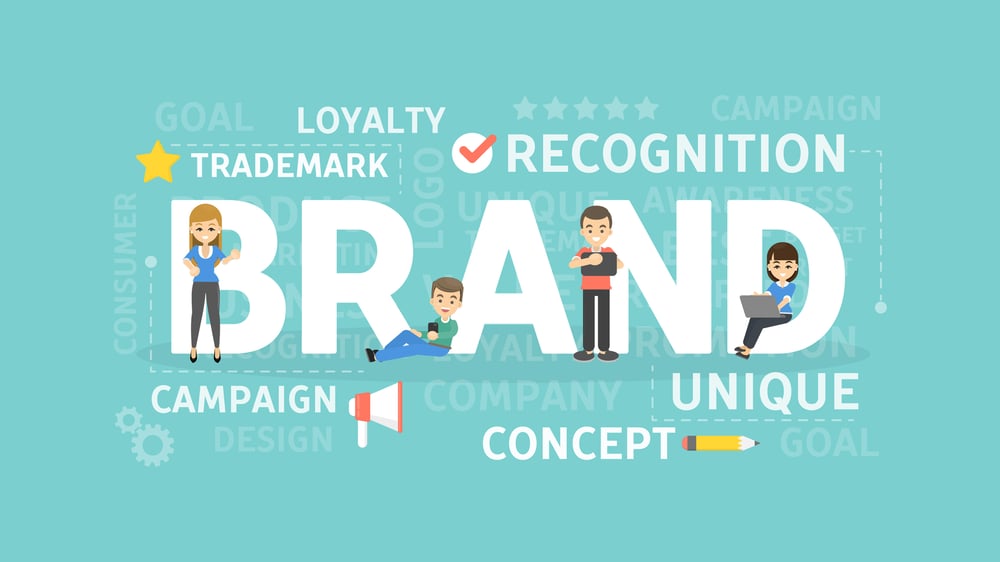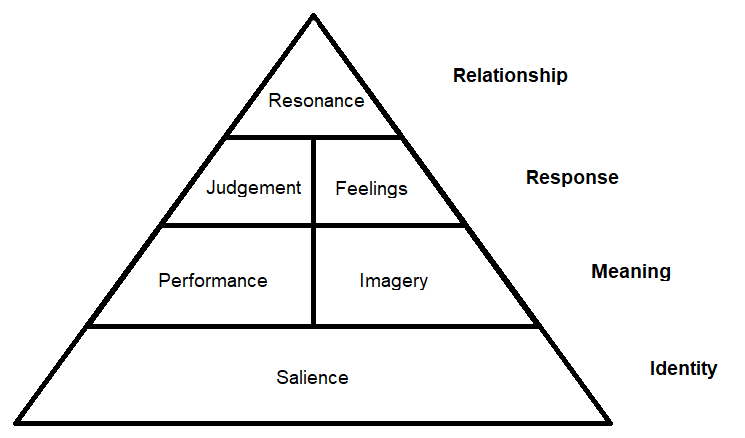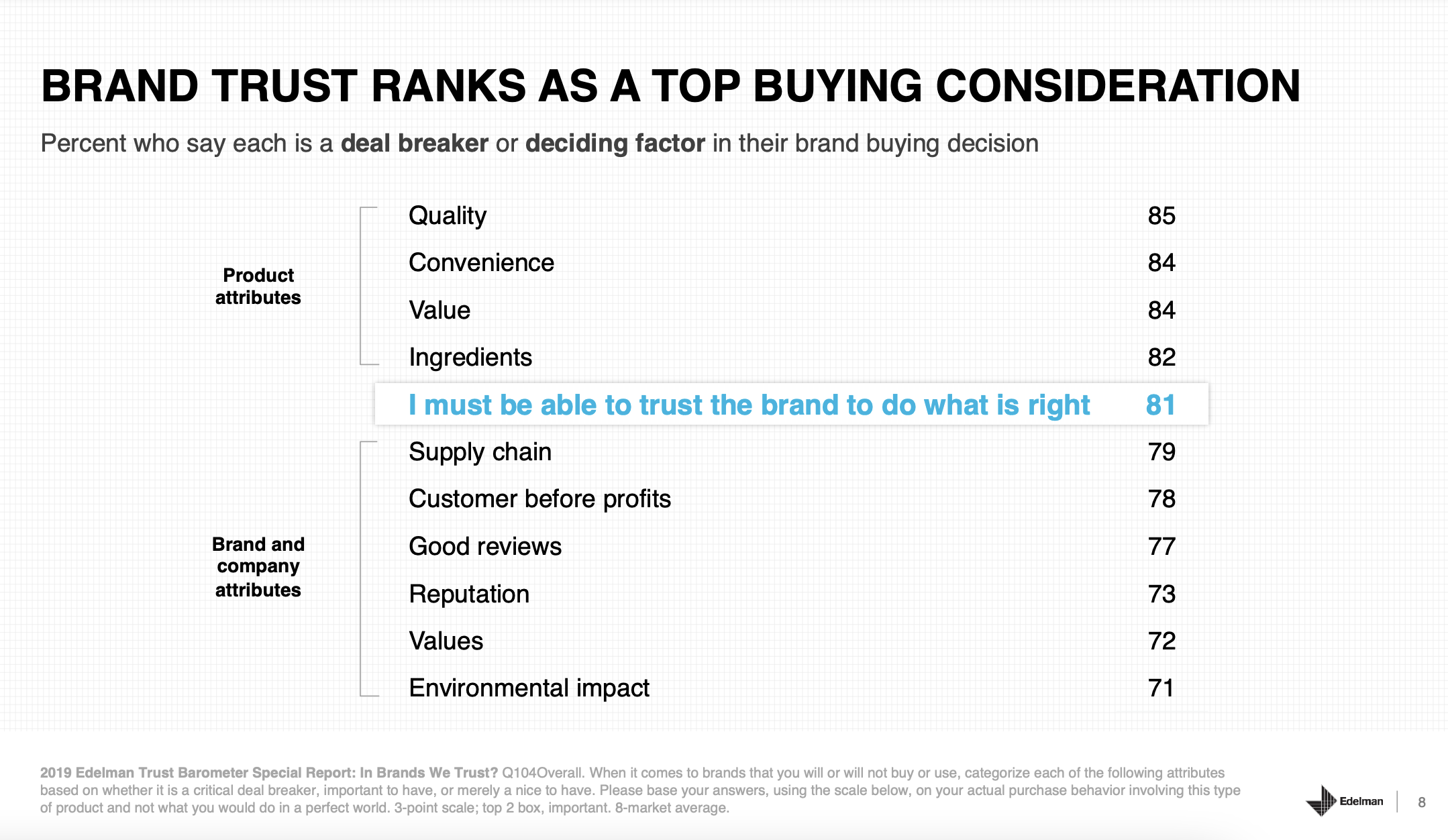How Brand Resonance Works and Why It's Important
Anyone in marketing understands that having a strong or well-known brand is a huge asset when it comes to driving sales and growing a business. Customers trust what they know and it’s much easier to market yourself when you are a household name.
Unfortunately, not everyone can become a household name. For most of us, the goal is simply to create a brand customers know and trust. A brand they understand and can relate to. A brand that “resonates” with them.
What is Brand Resonance?
If you are responsible for building a brand, either as a product or service provider or as a professional marketer, you are undoubtedly familiar with brand awareness, equity, and loyalty.
Awareness, equity, and loyalty are what you strive for, and you may even use the terms interchangeably. In truth, they're not the same thing. They are each a component of what you actually want to achieve -- brand resonance.
Brand resonance defines the relationship you have with your clients or customers. You strive for brand awareness because you can't have a relationship with customers that don't know who you are. You want brand equity because it means your customers value what you are. Brand loyalty indicates that your customers come back again and again. Each of these describes a foundational layer of the brand resonance pyramid (we’ll get to that in a minute).

To better understand what brand resonance is, think for a moment about your favorite brand of..well, anything. It doesn't matter if it's a coffee shop, grocery store, or hotel chain. Now, skip past what you know about that brand and move directly to how you feel about it. And how you think the brand feels about you, the customer. That's your relationship with the brand or what marketing professionals call brand resonance.
This mental exercise works in reverse too, but it's not nearly as pleasant of an experience. You also have your least favorite brands - those you have vowed never to do business with again. With them, there exists brand dissonance. An unpleasant situation for any brand.
Why is Brand Resonance Important?
Brand resonance is critical to the success of your business. If composed correctly, it’s the culmination of all your marketing efforts. It is the relationship that exists between your business and your customers after all the foundational questions they have are answered to their satisfaction.
Once they are satisfied with their understanding of who you are, what you are, and how they feel about you, they are left to decide how much of a connection they would like to have with you. That is the essence of brand resonance.
As noted earlier, people want to do business with brands they like and trust. If you try to take shortcuts and fail to develop any layer of the resonance pyramid, you are at risk of dissonance or losing that customer relationship. As with a musical note, resonance is the goal, and discord will turn the listener away quickly.
It’s important to remember that developing brand resonance is not a binary proposition. It's not a question of whether you have it or don't. It is a continuum that deserves to be the focal point of your marketing efforts as you practice diligently to produce a melodic harmony that fills your customer's needs and desires, helping them decide to have a stronger relationship with your brand.
How the Brand Resonance Pyramid Works
Because it's easy to visualize, the concept of brand resonance is commonly portrayed as a pyramid. The idea of visualizing brand resonance as a pyramid comes from the Customer-Based Brand Equity (CBBE) model, outlined in a 2001 working paper by Kevin Lane Keller, published by the Marketing Science Institute.

Layer 1: Identify
The first layer or the foundation of the pyramid is Brand Salience. It represents the questions answered as your customer becomes aware of who you are.
Layer 2: Meaning
The second layer has two parts; Brand Performance and Brand Imagery. This layer is established as your customers decide what you are and what you mean to them. The rational side of your customer will determine how well you perform or how you meet their needs. Depending on your customer's priorities, it could be reliability, price, or even aesthetics that they use to determine your performance.
The emotional side of your customer will be swayed by the image you portray. Here is where logos, fonts, color schemes, and other marketing aspects designed to cultivate the customer experience come into play.
Layer 3: Response
The third layer consists of the customer response. How do they respond to the messages you’ve created? The rational judgments and emotional feelings evoked by the customer's experience with your brand will be the substance of the response layer.
Layer 4: Relationship
At the top of the pyramid is Brand Resonance—the relationship that has developed due to your customer getting to know who you are, what you are, and how they feel about you.
How Marketing Evolution Can Help Drive Brand Resonance
If we can take away anything from the breakdown of brand resonance, it’s that businesses must go above and beyond to truly create a relationship with their customers. You need to ask yourself which layers of the brand resonance pyramid need to be shored up. Have you focused too much on creating an image with too little consideration of what performance means to your customers? Are your customers' experiential judgments and feelings conducive to building a meaningful relationship with your brand?
One way marketers can connect with customers is through personalization and optimizing the right message to the right person. At Marketing Evolution, we help brands discover how their consumers are influenced by interactions with brands, products, and services throughout the entire customer journey. We are also the only marketing performance measurement solution that includes creative performance in the modeling process, enabling true creative message optimization. Developing brand resonance is challenging but with the right tools in place, you will certainly get there a lot quicker.


